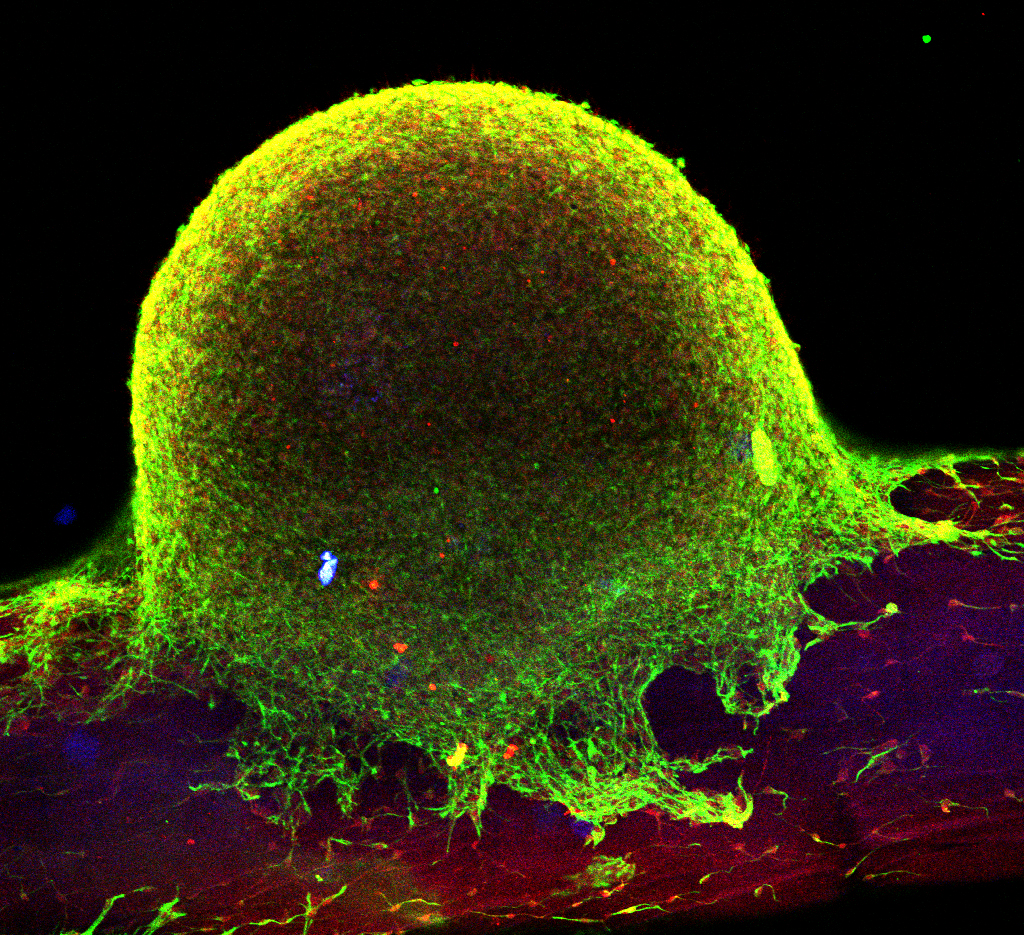Tag: Biochemistry
-

Unexpected Role for Calcium Ion Channel Protein Revealed
Northwestern Medicine scientists and collaborators have shown that a protein thought to form calcium ion channels instead regulates the activity of another member of the family to modulate immune responses.
-

Insights Into Key Molecular Process Underlying Many Cancers
A paper published in Molecular Cell provides new insight into a protein complex called COMPASS and its function during histone methylation, a key modification that regulates gene expression.
-

Halting Lethal Childhood Leukemia
Northwestern Medicine scientists have identified a molecular therapy to prevent the growth of a rare pediatric leukemia.
-

Transcription Factor Responsible for Variability in Congenital Brain Disorder
Northwestern Medicine scientists have identified one of the molecular mechanisms behind the variability of holoprosencephaly, a congenital brain malformation.
-

Understanding Chromatin’s Cancer Connection
Northwestern Medicine scientists have developed a new way to image chromatin within living cells, opening the door to large-scale screening techniques, including for cancer.
-

Enzyme Identified as Target Against Triple-Negative Breast Cancer
Northwestern Medicine scientists identified an enzyme as a potential new target for triple-negative breast cancer, a form of breast cancer that is associated with early tumor recurrence and significantly increased mortality rates.
-

On the Forefront of Regenerative Medicine
Northwestern’s biomaterials labs are developing the next generation of materials in medicine, called supramolecular biomaterials – molecules designed in a way to mimic cell structures and functions of biological signaling.
-

Fruit Flies Inform Understanding of Human Gene Expression
When it comes to gene regulation, there are more similarities between fruit flies and humans than previously thought, according to new Northwestern Medicine research.
-

Shilatifard Receives Walder Research Award
Ali Shilatifard, PhD, has been named the 15th recipient of the Martin E. and Gertrude G. Walder Award for Research Excellence, an honor given annually by the provost that recognizes excellence in research at Northwestern University.
-

Balancing Gene Expression to Prevent Disease
Northwestern Medicine scientists explore research that has shown how the balanced activities of two protein families regulate gene expression during embryonic development and how mutations that tip this balance lead to cancer.






